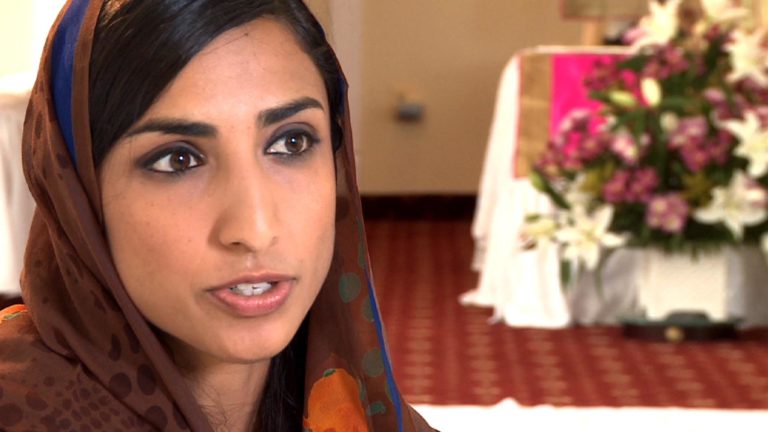There was rubble the last time I was here. Now I gazed at clean marble and inverted water fountains and green trees that rustled in the cool breeze. We listened to the reading of the names of the dead and waited for Joe’s name. It was solemn and peaceful…She began to lead me away from the crowd.
“Shouldn’t we wait here for the L’s?” I asked. They were on the D’s.
“Every name is Joe’s name,” she said. She led me into the 9/11 Memorial Museum… A map of the Twin Towers flickered on a screen. We sat down and watched. Names appeared on the map on the screen, followed by a recording of a person’s voice. Joe Leavey’s name appeared on the map, identified as a firefighter who was on the fortieth floor of the South Tower. A recording of his voice had been recovered in the rubble. It was made at 9:57 a.m., two minutes before the South Tower fell. We heard his last words before he died. He told his unit: “I’ll be right up.” Then crackle and silence.
My chest cracked open. I began to sob. Kerri looked at me tenderly and put her arms around me and we cried together. My grief for Joe was fresh, hers practiced, so that when she stopped crying, I just kept going. I was grieving Joe, but because every name was Joe’s name, I was grieving all of the people who died in the attacks. I realized that, after fifteen years, I had never been given the chance to grieve 9/11. Not even a day. Not even an hour. This was the case for so many of us who jumped into crisis-response mode to protect our own families and communities from hate. We were robbed of the space to breathe, let alone the right to grieve with our country. Now the tears came, fifteen years later, and it was a relief. Kerri had given me the gift of time and space to grieve with her.
How can we presume to grieve people we never knew, people who don’t look like us or share the same history with us? Here is the answer: Grieve with those who loved them. Grieve with the living. That is the revolutionary act.
When we were done, Kerri took me outside and ran her fingers over Joe’s name etched into the stone. An American flag lay next to it, dappled with water droplets from the fountain.
“So much killing in Joe’s name,” Kerri said. She was sad and weary. I realized that Kerri had been robbed, too.
I thought back to how it started. Before Americans even had time to process our shock and count our dead after 9/11, our energies had been redirected for war. On the very night of the attacks, President Bush declared a “war against terrorism” and divided the world into us and them: “You are either with us or against us.” Grieving is a process that takes time and stillness and presence. It is impossible to grieve and prepare to kill at the same time. So, despite all the performances of national mourning, we as a nation had little time and space to be present to our pain and all that it had to teach us. Unresolved grief inside a person is tragic; unresolved grief inside a nation is catastrophic: It releases enormous aggression. In the name of the dead—in Joe’s name—the U.S. war on terror that began in Afghanistan would come to span at least two decades, three presidencies, and seventy-six countries; cost more than $5.6 trillion; and kill more than one million people. One million. And every year on the 9/11 anniversary at Ground Zero, Joe’s name is read and broadcast to the nation to justify it. Meanwhile, the same aggression that powers a perpetual war abroad has created new norms for the hate and criminalization of Muslims and immigrants at home. It fueled the resurgence of a white nationalist movement that would, in time, overtake the highest offices of the nation…
Standing there together arm in arm, in our stillness and our sadness, Kerri and I mourned what might have been. We decided that if the nation could not model shared grieving, then we would. We had learned that grieving is an act of revolutionary love: Grieving together, we ease each other’s suffering and come to know each other. Only when we know each other can we understand how to stand up and fight for each other—and the world we want. And so, four days after I joined Kerri at Ground Zero to mourn Joe, she joined me in Arizona to mourn Balbir Uncle with me on the anniversary of his murder. One act of revolutionary love inspires another. What happened after that changed the story for me and the Sodhi family forever.”


